Domingo Domingo, the first feature film by Laura García Andreu, whose world premiere took place at the 25th Thessaloniki International Documentary Festival, takes its title from the real name of its protagonist: a farmer by vocation, a construction worker by trade, a passionate cyclist and bon vivant by profession. Nothing in his life is an incidental part, Domingo lives it with the untouched enthusiasm of a neophyte, giving us one of those documentary protagonists who would deserve to be a fictional character.
In Domingo Domingo, a film produced by Rafa Molés (Lobster Soup), García Andreu offers us an intimate and candid portrait that borders on the limits of modesty. At the same time, he imperceptibly moves the focus away to show us a background that, based on everyday life in a small agrarian town in the province of Castellón (Alquerías del Niño Perdido), opens up major current issues that recent cinema has dealt with from different perspectives.
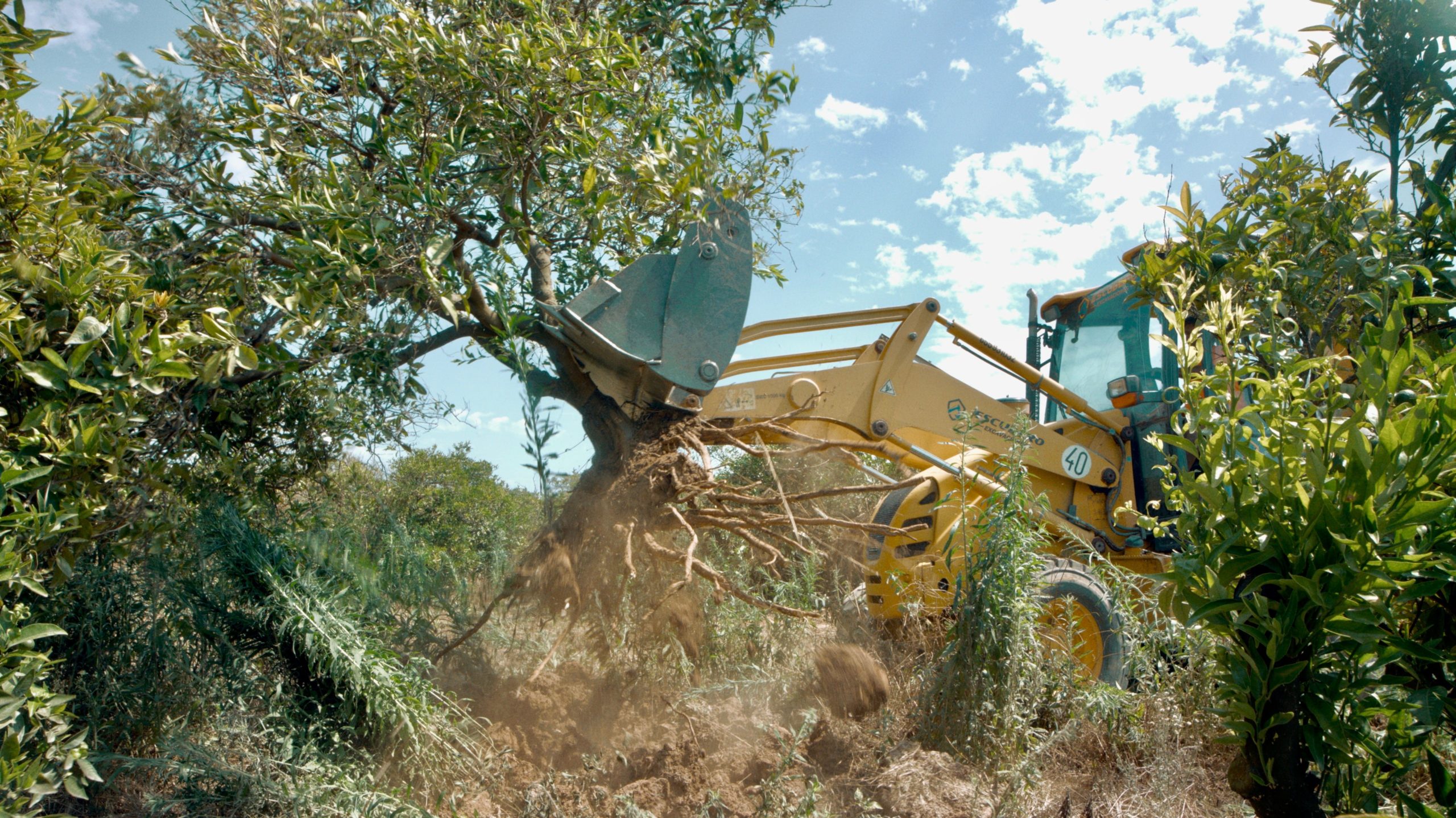
Domingo Domingo (Laura García Andreu, 2023) Photo: Suica Films.
In her documentary —following the success of her award-winning short film [M]otherhood, which was screened at festivals and on television from Japan to Austria— the director shows a changing world, where the ruling powers are sweeping away centuries-old ways of life, undermining the independence of farmers, their right to a fair return for their work and their produce, while the threat of latifundism and the monopolization of agricultural crops and distribution use patents on variants, in this case on oranges, to suffocate and kill the traditional economy.
With the premiere in Thessaloniki and the excitement of the encounter with the Greek film-loving public still fresh —and their enthusiasm at identifying with a subject that more than one had experienced in their own family— Laura García Andrés spoke to EL HYPE at the legendary Warehouse C. There she spoke to us about the shooting of this Spanish-Lithuanian co-production, about the silent violence with which the multinationals are monopolizing the production and the orange market, and also about the courage, between naïf and conscious, of an outsider of agriculture.
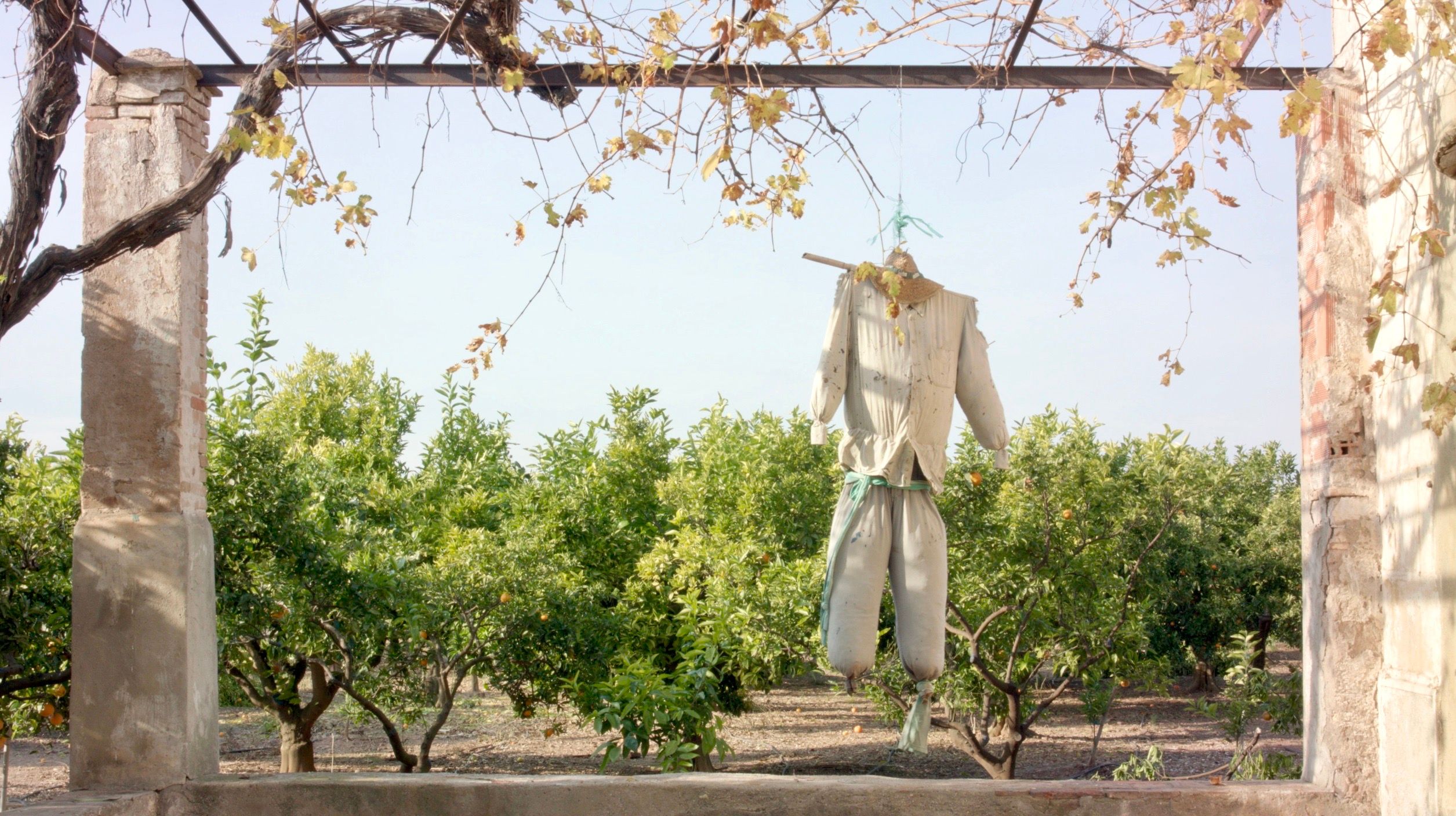
Domingo Domingo (Laura García Andreu, 2023) Photo: Suica Films.
After “[M]otherhood]” I wanted to shoot a much more creative documentary, without interviews on camera, with a protagonist. Also, humor was very important, it was implicit in the idea of what I wanted to do. The meeting with Domingo was very natural, due to a conjunction of events, I had wanted to deal with the subject of agriculture for a long time, because my grandfather was involved in it and I had a very close relationship with him, being aware that he didn’t have a voice in society.
Domingo Domingo is a cousin of Molés, the director’s partner, so everything was in the family and it was great to count on a spectacular character, extroverted and persevering, who made it easy for us to collaborate on the project. He was secretly developing a new variety of orange, a mutation, which could provide him with the kind of life he wants, without material worries and completely dedicated to what he likes.
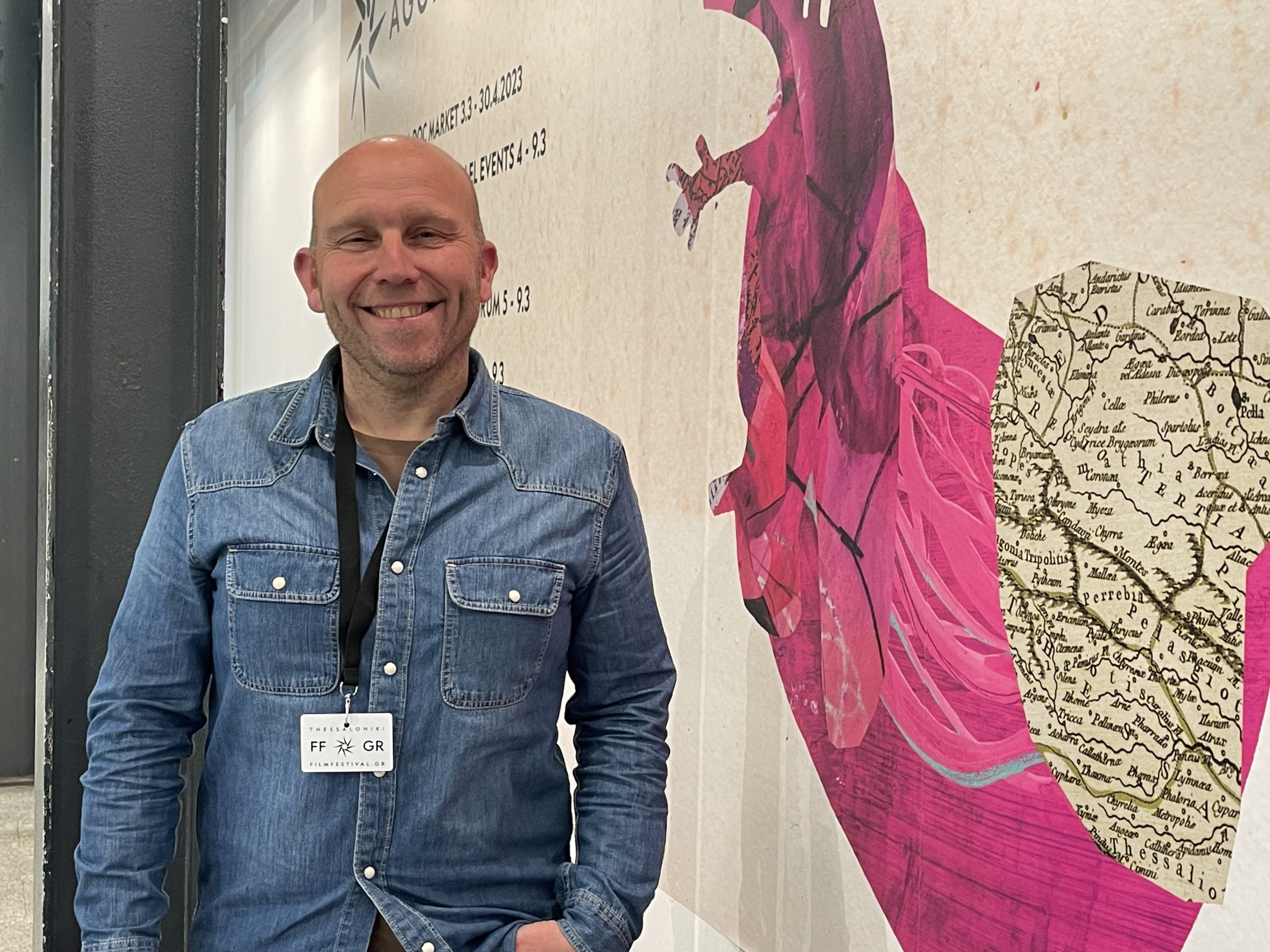
Domingo Domingo, star of Laura García Andreu’s film. Photo: EL HYPE.
In the film we follow his adventure, the secrecy and also the first meetings with specialized advisors, on whom he must rely in order to patent his discovery, but there are no signs identifying these professionals. I didn’t want to do that, although they are very prestigious people in their field, just like the old men who meet in the village bar to discuss production, and distribution… they are humble-looking people who drive very expensive Lexus and have impressive knowledge of their business. They have been having the same conversation all their lives and always have something to add. It’s a microcosm, but the subject can be easily globalized, their concerns are universal.
Shooting with a pandemic in the middle and with a free spirit as the main character must not have been a bed of roses, but the director tells us that Filming was very organic, very natural, we tried it out one day, to see how we were working together and how the ideas could take shape, and he, who is not afraid of risk, agreed immediately. However, as Domingo confessed to us, he did not imagine that the film would be built on waiting, nor that the preparations would be so exhaustive as to collapse his weekends, but in spite of everything, according to García Andrés, Both he and the rest of the participants were very generous with their time and also patient.
Regarding improvisation, the director says I wrote the story as a tale, I did a sequential treatment, with what I wanted to appear in the film. In the end, there were things that I knew would be there and could be filmed, and others that the characters introduced.
Domingo travels to Berlin, with the intention of seeking funding for his patent at the agro-food fair, and this is one of the most tense moments in the film, due to its candour and lack of preparation. We are intrigued by how this episode was planned: Carles Peris, the president of the Unió de Llauradors i Ramaders, has extensive experience in this type of forum and felt that it could be a good scenario to show Domingo’s perseverance in a context relevant to the central topic of the film. We approached it as a game and he accepted, it’s his character, we knew he wouldn’t feel bad and that he would recognize himself.
The protagonist saw the film for the first time with the audience in Thessaloniki, He had only seen the trailer before, but he loved seeing it for the first time on the big screen, he identified himself completely, because after all, it was his own story, there was nothing that made him feel uncomfortable, we have all participated in the same game, he is committed and funny, he confessed it himself in the colloquium with the audience.
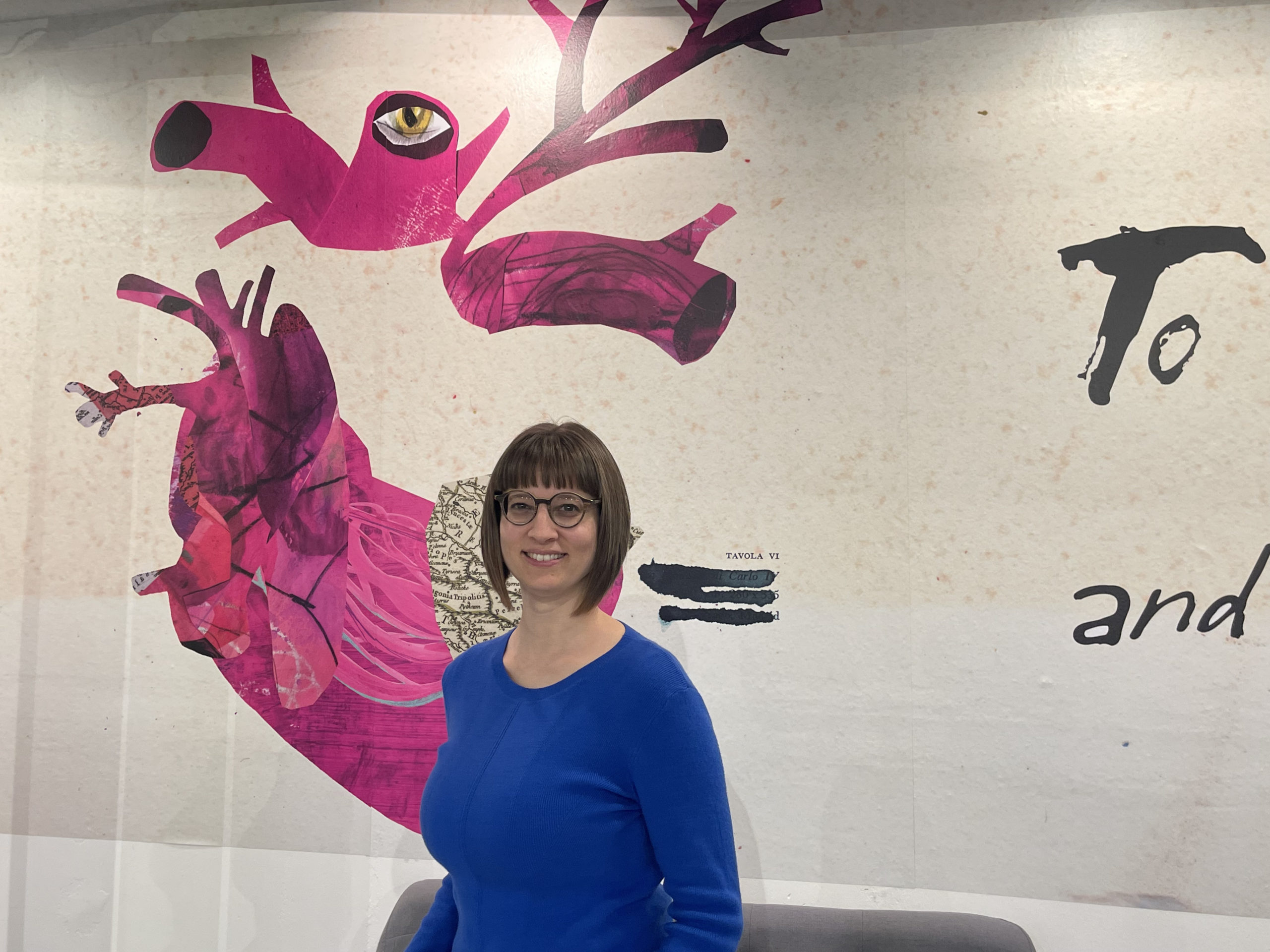
Laura García Andreu, director of Domingo Domingo. Photo: EL HYPE
And yet, very serious and dramatic issues are discussed, Yes, but with irony too, my grandfather used to do it, it’s a way of facing reality, the harshness of agriculture and its instability, Domingo is also like that. There is a moment when he is filming Carles for television and his wife calls him to go and prepare the paella, you can’t make that up, just like the old people and their quarrels of old friends, which last for decades, every day at the same time in the same bar.
The camera allows all the characters to express themselves without any labels, as we have mentioned, entering directly into their conversations, festive meals or meetings, allowing them to present themselves through their own interventions, without needing names, positions or social status: I wanted it to be clear, in the case of the bar talk show, that they all have a rivalry among themselves and that, like the big businessmen, they often lie and say they don’t make any money, nobody makes any money… but it’s not true. We also wanted to make it clear that they are real friends, even if they are on different sides of the industry.
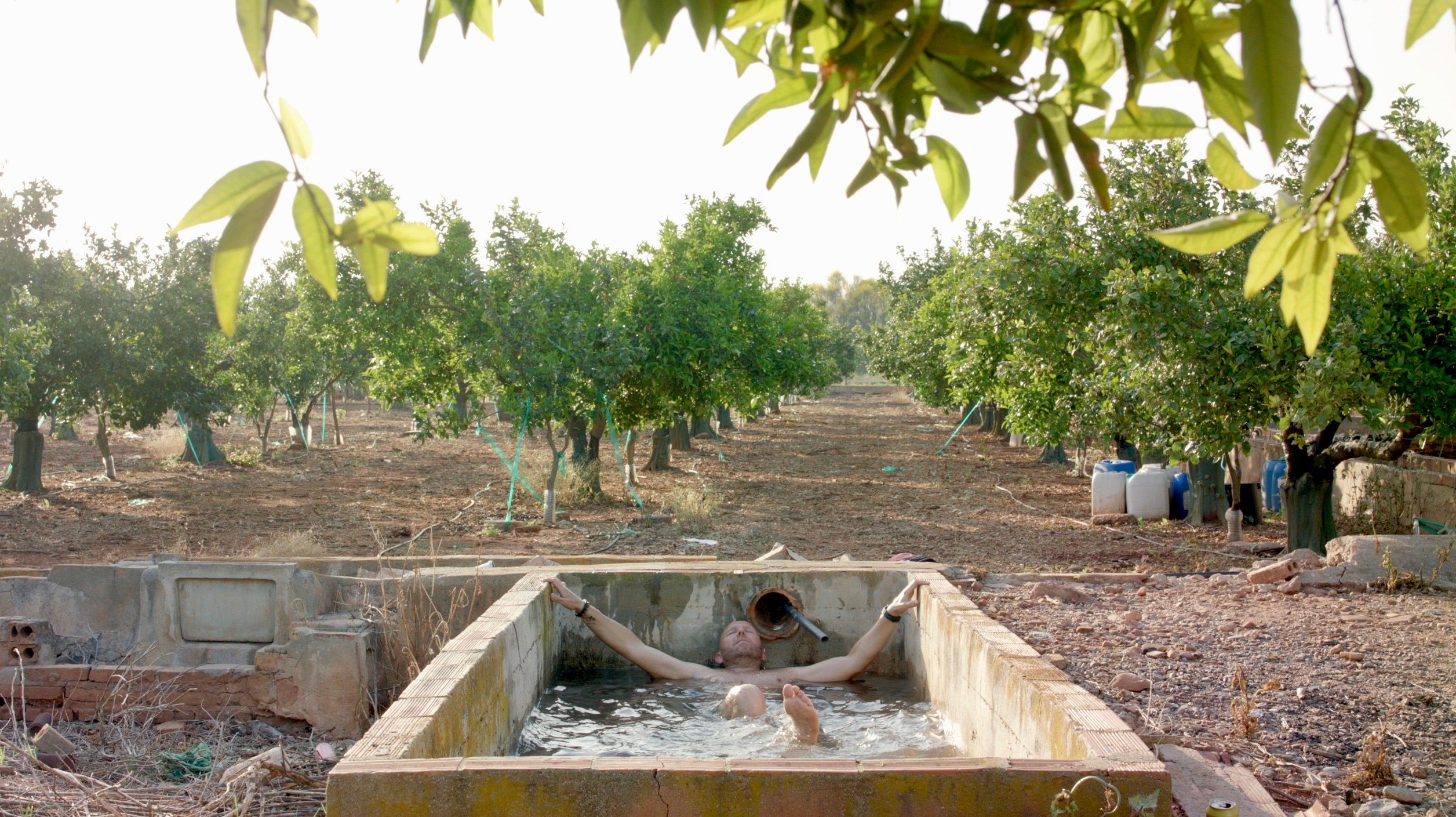
Domingo Domingo (Laura García Andreu, 2023) Photo: Suica Films.
Their concern is very much anchored in the present, in the evolution of the economy, at a time when nations like China are buying up farmland in Africa. We are witnessing a historic moment when the model of agriculture will change forever, Absolutely, Southern Europe is the vegetable garden of the continent and this is already happening everywhere. Exporters are becoming more and more producers at the same time, latifundia are being created with the cheap land of small farmers, who are elderly, even 80 years old, and have no generational replacement. The new owners are not going to pay themselves the 20 cents per kg that the smallholders are receiving, because they have no other way out, it’s either that or burn the fruit, and they don’t even get back the money it costs them to produce.
But Domingo would like to be a farmer, he literally says that he would like to do the same as his father, but he has to work as a bricklayer. Yes, but he wants to be as free as possible and everything has to be “my way”, at a time when transformations are affecting our food sovereignty, and on top of that, we lack information about it, we are giving up our power and giving it to the multinationals. On the other hand, Domingo and his brother have a micro-business that sells only on the Internet and instead of those 20 cents they charge more than a euro for a kilo of oranges, these are the little strategies of David against Goliath, but as long as they have fields left to cultivate.
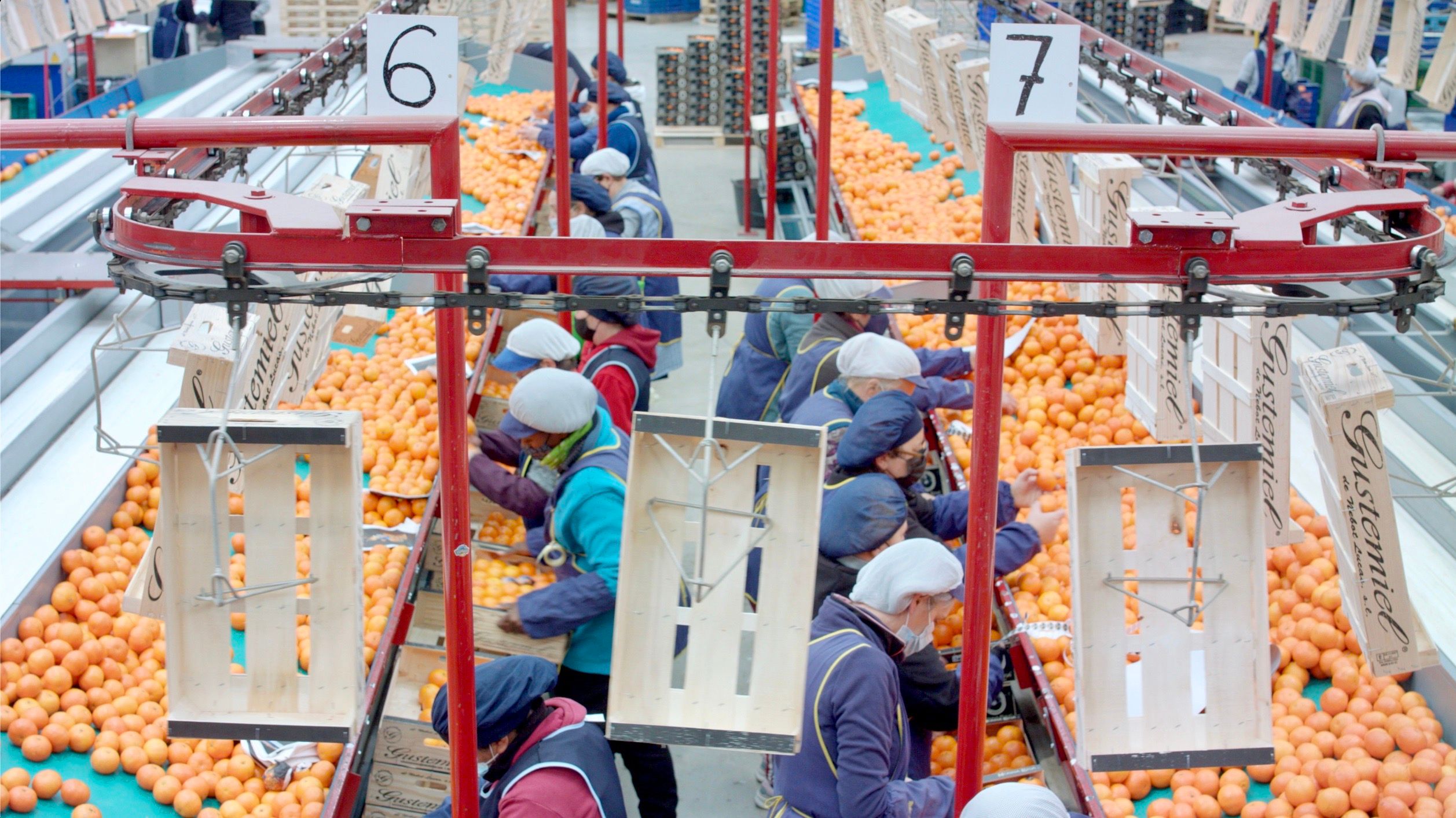
Domingo Domingo (Laura García Andreu, 2023) Photo: Suica Films.
The director regrets not having had the opportunity to talk more about her own grandfather’s experience, I never asked him, because he died when I was in my early twenties, but I still have a very painful feeling when I think about it, it makes me sad, because I have a kind of romantic feeling…. I am also an anthropologist and I greatly value the preservation of these traditional, artisanal trades and modes of production.
Domingo Domingo will be available on the Filmin platform and is scheduled for theatrical release, as well as attending various specialized festivals. And, of course, there will be a premiere in Alquerías del Niño Perdido, because the film belongs to everyone, I hope they react as well as Domingo, because they are going to see themselves represented. The film is very respectful and gives them a voice, the farmers consider themselves illiterate, but they are not aware of how much knowledge they treasure and the enormous value they have for society.
This know-how, born of experience accumulated over generations, is a knowledge that has been passed down orally and will be forgotten, because only exceptional cases such as Domingo’s could still have the possibility of passing it on.

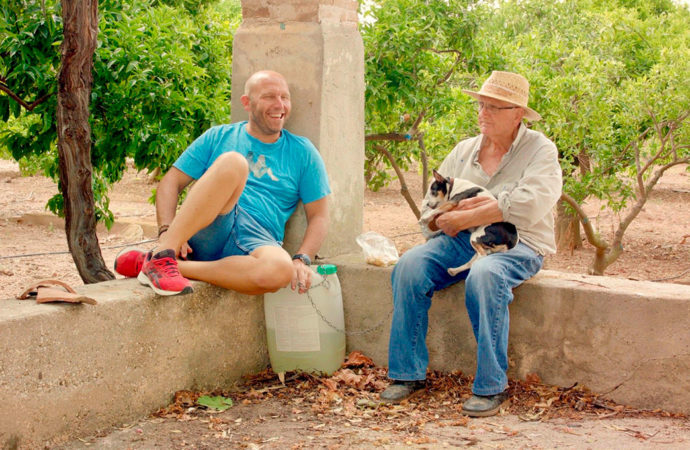

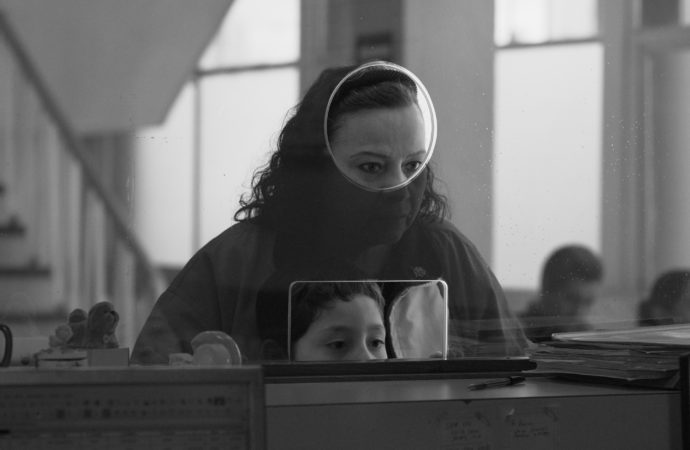
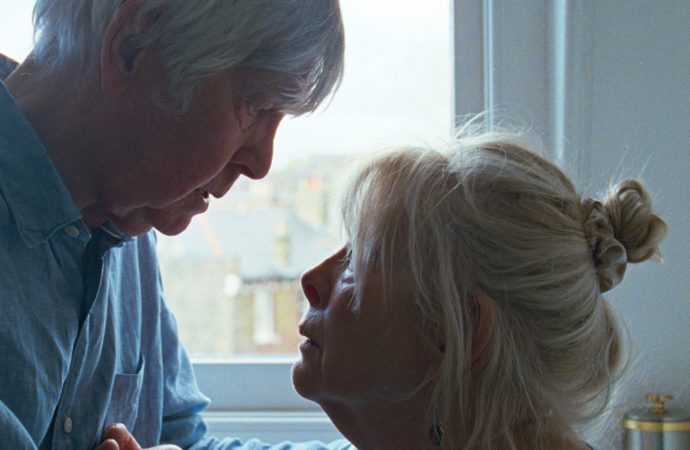
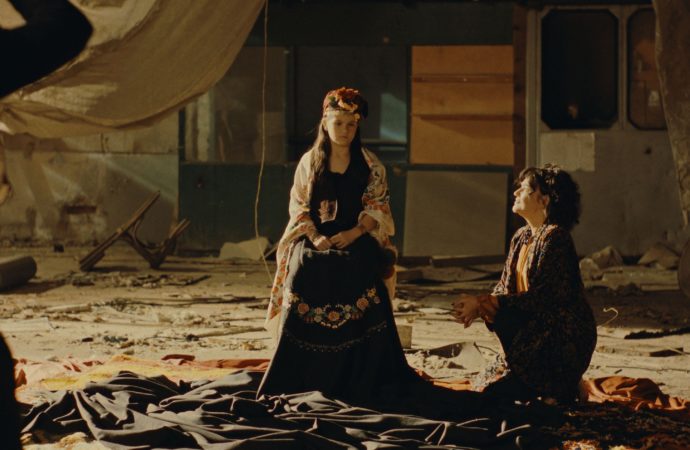
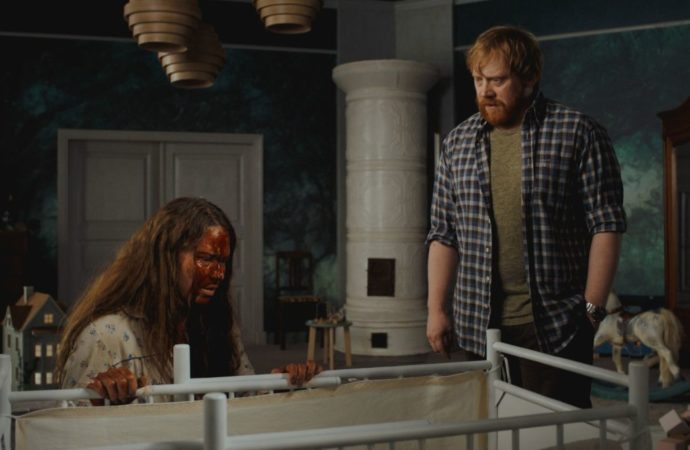
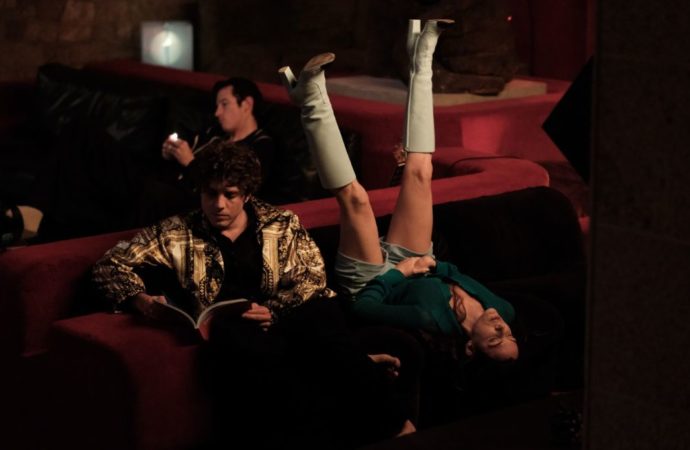
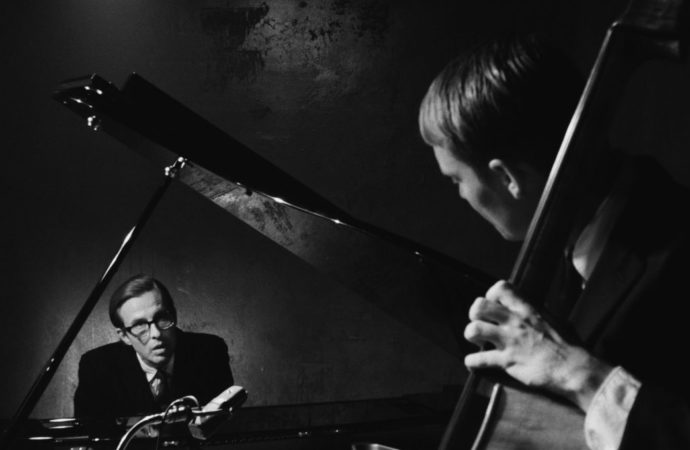
No one has posted any comments yet. Be the first person!